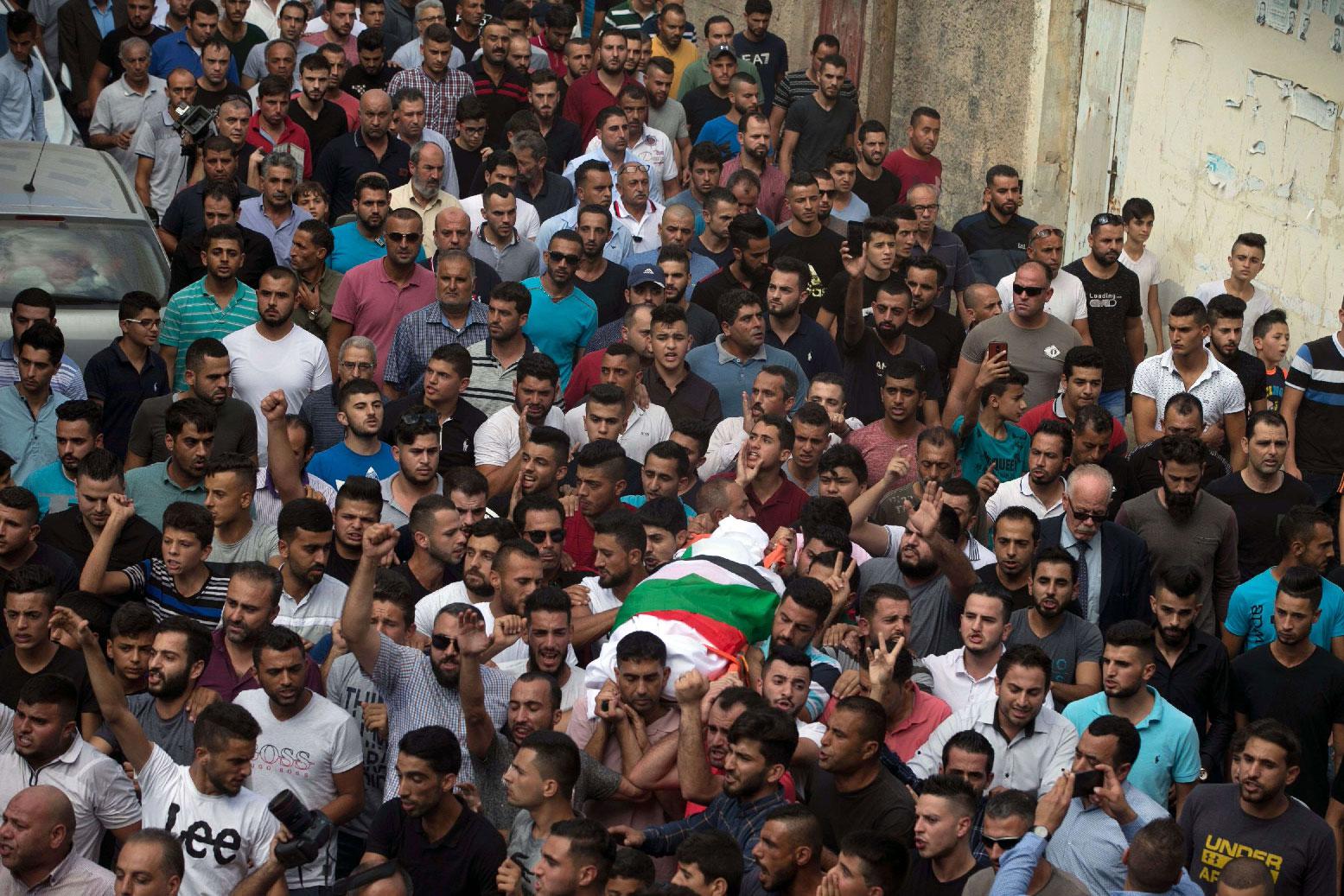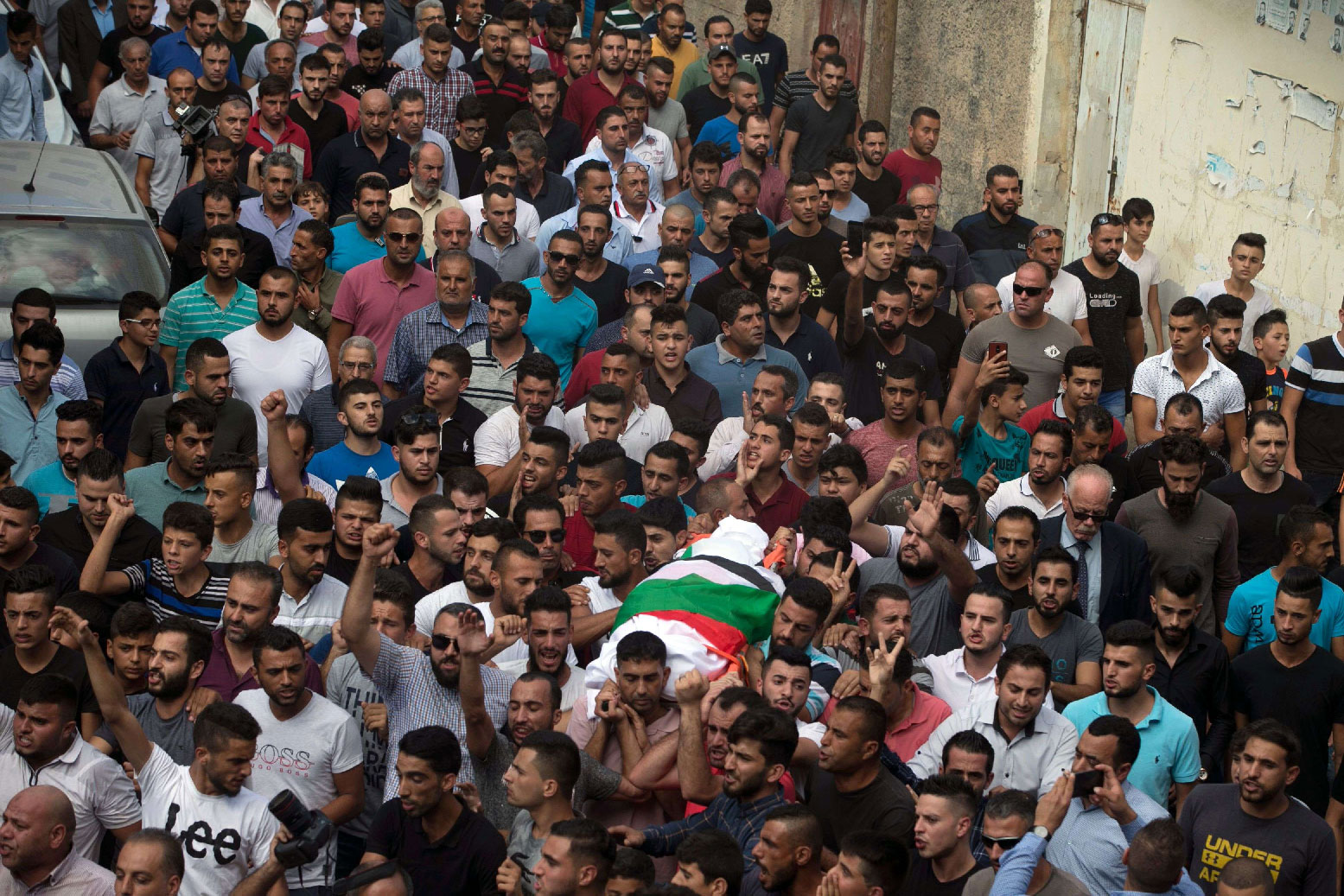Teenage Jewish settler charged with manslaughter over Palestinian's killing
JERUSALEM - Israeli prosecutors on Thursday charged a Jewish 16-year-old with manslaughter after he allegedly threw a stone at a car in the occupied West Bank and killed a Palestinian woman.
Prosecutors announced the indictment for the October incident in a statement, alleging the unnamed suspect threw the stone in an anti-Arab attack "as part of an act of terror".
He was also charged with stone-throwing and intentional sabotage of a vehicle, both "under terrorist circumstances" which could empower the court to impose a harsher sentence if he is convicted.
Manslaughter carries a possible 20-year jail sentence in Israel and is often imposed instead of a murder charge where premeditation cannot be proven.
Aisha Rabi, 48, died after the stone smashed through the windshield of the car she was travelling in with her husband and nine-year-old daughter in the occupied West Bank on October 12.
Her husband managed to continue driving and make it to a Palestinian clinic, prosecutors said.
The mother of nine was struck on the head and died later at a hospital in the city of Nablus. The stone weighed about two kilograms (4.4 pounds), according to prosecutors.
Israeli authorities arrested the suspect on December 30. Four other suspects arrested as part of the investigation have been released to house arrest.
The five were students at the Pri Haaretz religious seminary in the Rechelim settlement in the occupied West Bank.
Israeli media have reported that evidence against the teenager includes his DNA found on the stone.
Aisha Rabi's husband Yacoub said he had no faith in Israeli justice and wanted a hearing in an international court.
"The Israeli police and intelligence both know who hit us leading to my wife's death but they charged one person only."
"When they hit our car with stones they were more than four people," he said. "I want all those who killed my wife to be tried in an international court."
'Our son is innocent'
The suspect's lawyers issued a statement after the indictment was announced saying he was innocent and alleging prosecutors were desperate to charge someone with the crime.
"We know that our son is innocent," the statement quoted his father as saying.
"This indictment stands on a weak footing and DNA, which we doubt will stand up to court scrutiny," defence lawyer Amir Bracha told reporters.
The Israeli-occupied West Bank sees frequent friction between Palestinians, who see the territory as part of a Palestinian state, and Israel's Jewish settlers, many of whom identify with radical Jewish groups.
According to the Shin Bet, incidents of Jewish militant violence increased by almost 50 percent between 2017 and 2018. Indictments for such incidents in the same period increased by 26.6 percent, the Shin Bet said.
Israeli investigations into Jewish terrorism are seen as highly sensitive among Jewish Israelis.
Israeli authorities have been accused by Palestinians and rights activists of dragging their feet in cases of anti-Arab violence by its own citizens in comparison to investigations into Palestinian attacks.
Far-right Israelis allege suspects have undergone coercement and torture. Israeli officials say Jewish militant attacks are hard to crack because the suspects keep to small and secretive networks and train in resisting Shin Bet interrogation.
The most high-profile case in recent years was a 2015 firebombing of a home in the Palestinian village of Duma that killed an 18-month-old boy and his parents.
Amiram Ben-Uliel, 21, from the northern West Bank settlement of Shilo, was charged with three counts of murder and one of attempted murder, arson and conspiracy to commit a hate crime in the case.
A 17-year-old was charged with being an accessory to committing a racially motivated murder.
However, an Israeli court has since thrown out parts of the confessions of both the minor and Ben-Uliel, ruling they were obtained through physical coercion, dealing a setback to the case.
The minor in the case was given house arrest in July after the ruling on the confessions.


